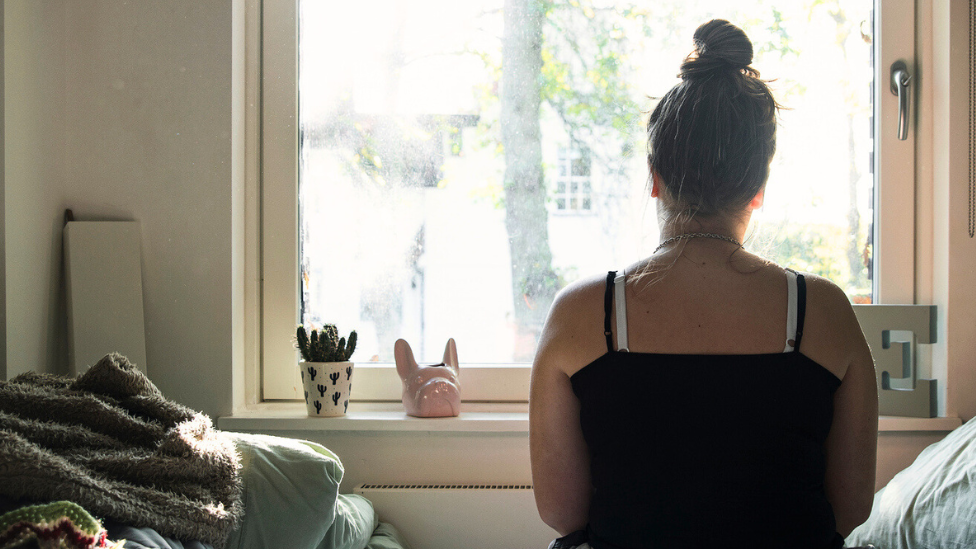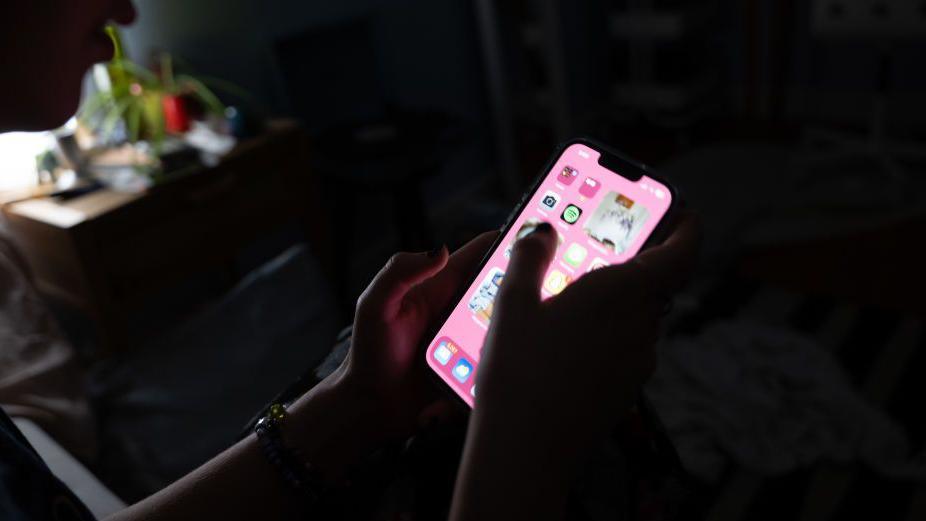Time alone raises 'threat alert' in teens - study

Similar studies on the link between isolation and anxiety had only previously been carried out on rodents
- Published
Teenagers who spend time alone in their bedrooms could be more prone to feeling threatened, research suggested.
Scientists at the University of Cambridge said a new study found people in their late teens had an increased sensitivity to threats after a few hours in a room alone.
Experts believed the findings could bring more understanding to the link between loneliness and mental health conditions such as anxiety disorders.
Emily Towner, who led the study, said people were left feeling uncertain in themselves despite still being connected with others online.

Emily Towner said periods of isolation could make adolescents more vulnerable to developing anxiety
Forty young people from Cambridge were tested before and after several hours alone as part of the study, external.
Periods of isolation, including when participants could use their phones, led to an increased threat response – the sensing of and reacting to potential dangers.
The study's authors said loneliness could lead to excessive “threat vigilance”, even when online, which could negatively impact adolescent mental health over time.
They added it could contribute to the persistent and exaggerated fear responses typical of anxiety disorders on the rise among young people around the world.
Ms Towner, from Cambridge’s Department of Psychology, said: "This alertness to perceived threats might be the same mechanism that leads to the excessive worry and inability to feel safe which characterises anxiety.
"It makes evolutionary sense that being alone increases our vigilance to potential threats.
"These threat response mechanisms undergo a lot of changes in adolescence, a stage of life marked by increasing independence and social sensitivity.”
Participants were given initial tests and questionnaires to establish a “baseline”.
These included the Pavlovian threat test, in which they were shown a series of shapes on a screen, one of which was paired with a harsh noise played through headphones, so the shape became associated with a feeling of apprehension.
Electrodes attached to fingers monitored physiological markers of stress .
Dr Livia Tomova, the co-senior author of the study and a lecturer in psychology at Cardiff University, who conducted the work while at Cambridge, said: "Loneliness among adolescents around the world has nearly doubled in recent years.
"The need for social interaction is especially intense during adolescence, but it is not clear whether online socialising can fulfil this need.
"This study has shown that digital interactions might not mitigate some of the deep-rooted effects that isolation appears to have on teenagers."
Additional reporting by PA Media and Cambridge University
Get in touch
Do you have a story suggestion for Cambridgeshire?
Follow Cambridgeshire news on BBC Sounds, Facebook, external, Instagram, external and X, external.
Related topics
More like this story
- Published9 March 2018

- Published18 November 2021

- Published10 April 2018
